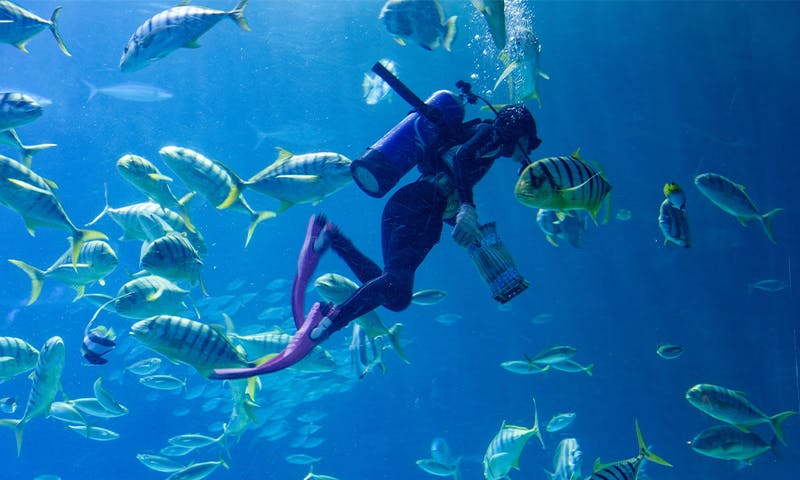Now Reading: Fish That Follow: A Fascinating Phenomenon
-
01
Fish That Follow: A Fascinating Phenomenon
Fish That Follow: A Fascinating Phenomenon

Fast Summary
- Research Background: Biologist Alex Jordan and his team studied fish behavior in the mediterranean Sea off Corsica, France. Their goal was to test if sea bream could visually recognize individual human divers.
- Method: Over 12 days,they trained two species of sea bream to follow a diver by rewarding them with food. The study included 30 trials comparing responses to a trainer diver versus a decoy diver dressed identically or differently.
- findings: Fish overwhelmingly followed the original trainer when the decoy wore different dive gear. Though, when both wore identical outfits, recognition was diminished. Visual cues from dive gear where key.
- Published Study: Results were published in the journal Biology Letters, indicating potential cognitive complexity in fish.
- Additional Insights: jordan speculates that given time, fish could recognize subtler human traits like hair color or eye color due to their tetrachromatic vision allowing detection of 100 million color variations compared to humans’ one million.
- Meaning for Wild Studies: Calum Brown highlighted this as one of the few successful field studies on wild fish cognition vs captive ones.
Indian Opinion Analysis
This study highlights an intriguing dimension of animal cognition related to specific visual faculties among marine life such as sea breams. For India-a country with vast coastlines and diverse aquatic ecosystems-findings like these could encourage broader research into understanding native marine species’ behavioral ecology and cognitive capacities. Such knowledge might enhance conservation strategies for regional fisheries and promote enduring interactions between humans and ocean biodiversity.
Moreover, India’s existing research infrastructure focusing on aquatic biology can integrate similar methodologies conducted under field conditions rather then reliance solely on lab experiments with captive specimens. This approach can yield more authentic insights into natural patterns within Indian aquatic habitats.
lastly, addressing misconceptions regarding limited intelligence among marine organisms-like those of commercially fished species-could bolster arguments for ethical treatment during fishing activities or development projects along coastal regions.























